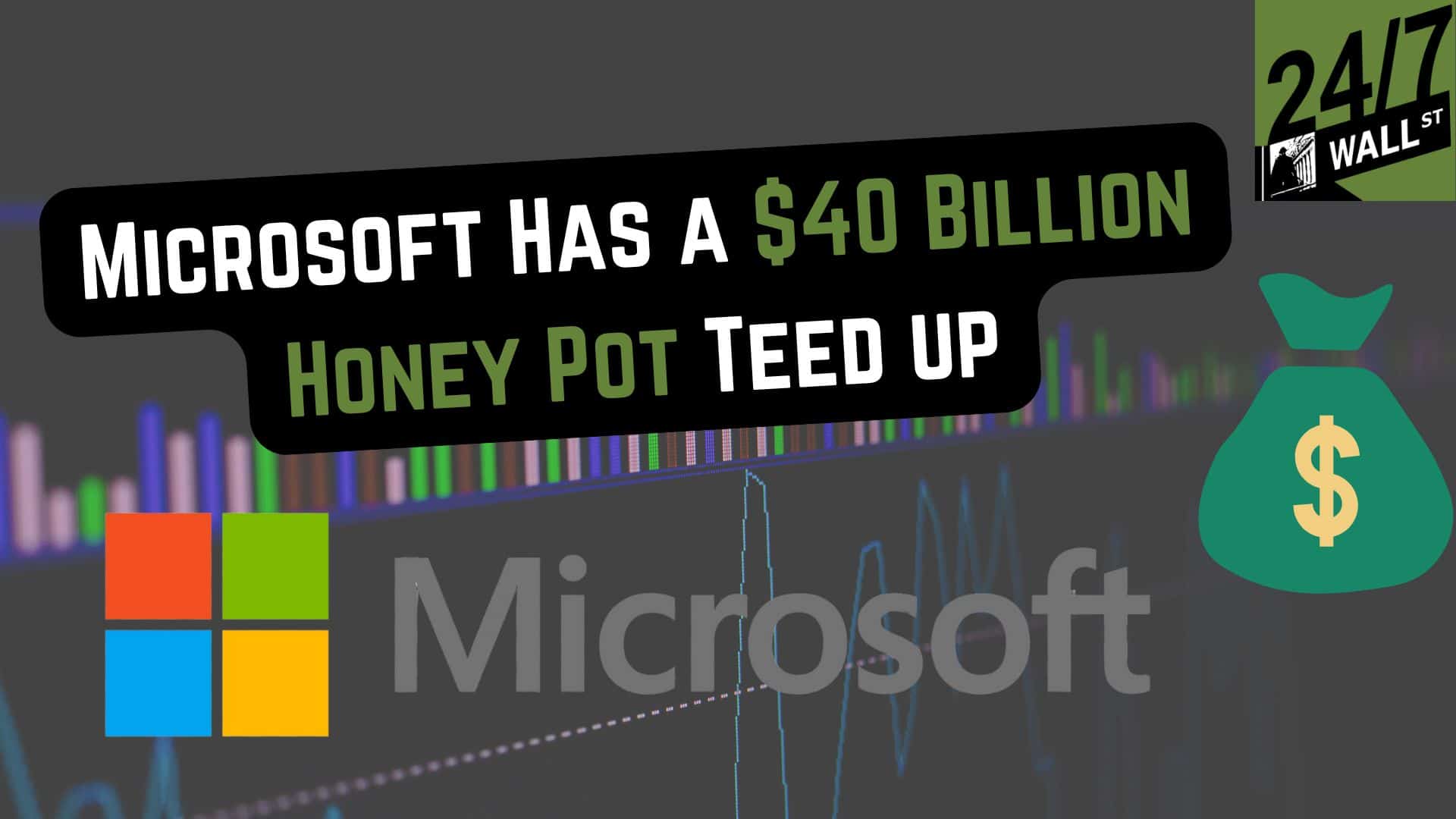
Key Points:
- Bing could gain market share as Google faces antitrust issues, making Microsoft a potential long-term buy.
- If Google is forced to break up or stop paying for default search status, Bing could benefit, especially with a deal with Apple.
- Microsoft could see a revenue boost, while Google (Alphabet) might become a long-term sell.
- As good as Microsoft and Google have been for investors, The Next Nvidia could be even better. Unlock the investments for free by clicking here new.
Lee and Doug discuss a new potential reason to consider investing in Microsoft (MSFT) (NASDAQ: MSFT) that goes beyond AI or cloud services: Bing. They highlight the recent federal court ruling that found Google (NASDAQ: GOOG) had been paying companies like Apple (NASDAQ: AAPL), Samsung, and Mozilla to make Google the default search engine, which played a significant role in Google’s dominance. If this ruling leads to changes or even the breakup of Google’s search monopoly, Microsoft could benefit by making Bing the default search engine on major platforms. They note that while Bing currently generates a fraction of the revenue that Google’s search division does, even capturing a portion of Google’s market share could significantly boost Microsoft’s revenue. They suggest that while this scenario won’t play out overnight, it presents a long-term opportunity for investors to consider buying Microsoft and potentially selling Google (Alphabet), depending on the outcome of ongoing legal challenges.
Transcript:
I have a reason.
I have a reason to buy Microsoft.
It has nothing to do with AI.
It has nothing to do with cloud.
This may be even a better reason to buy Microsoft.
Bing.
Bing has been the also-ran in the search industry since Steve Ballmer launched the thing probably around the year 2000.
I don’t remember.
Google came into the market and look, Google was a…
It was a better product.
It was a better product by far.
So a lot of people think that Google grew because, you know, people used it because they got better results.
They were more useful results.
Well, guess what?
A federal court decided yesterday that the reason people were using Google is that Google was paying people like Apple to make it the default search engine in Safari.
And Samsung.
And Samsung.
And they were doing it with Mozilla.
And, you know, no one knows for sure, but they were probably spending…
$50 billion buying real estate for Google.
And Google’s market share last time I looked was probably close to 85%.
Now, Mike, you’re going to see an appeal from Google about them just being antitrust on their part and that they maybe have to divest something like YouTube or break the company up.
But let’s say that most of this holds up on appeal.
The winners here will end up being a little bit Yahoo, but the big winner is going to be Bing.
Because at that point, Bing can probably go into the market and they can cut the deal with Apple.
They can cut the deal.
And in addition to having the infrastructure and everything for Bing already built, and I actually think that Chrome is…
The percentage is higher than 85%, but I could be wrong.
I thought it was more like 94% and Bing had maybe 6%.
But, I mean, Internet Explorer is long since gone.
And, you know, Google basically took all of that business because at the time, you know, 2000, anywhere from 2002 to 2007, Chrome was a far better search engine.
It was far better.
And yeah, I think Microsoft, if they’re smart, they’ll take that AI product, they’ll jam it into Bing, and they have it all set up to go.
I mean, it’s a decent search engine.
Nobody uses it, but it’s decent.
Well, I’ll give you a sense of proportion here.
Last year, Bing did $7 billion in revenue.
Google’s search division did $200 billion.
So even if Microsoft can take a third of that, if you look at Microsoft’s top line and you could bump that up by $25, $30, $40 billion, even if I have to pay Apple, you know, $5 billion, I could still have a business with total revenue of $50 billion.
And maybe it costs me $25 billion to go out and, you know, buy carriage on a bunch of these things.
Yeah.
It could be an even bigger boost, at least short term, than AI is because it’s hard to know when AI pays off.
Right.
Yeah.
If you own a search engine and your primary competitor gets its legs knocked out from under it and you can go in and buy a lot of the deals, that’s not just a quick turnaround.
It’s very, very predictable revenue.
You don’t have to say, “Oh my God, when does AI kick in?”
Search is now a 30-year-old online process.
You and I don’t have to sit around and think whether or not search is going to be a big deal.
I think Google is in for more than they bargained for here because they were so arrogant in how they did this for years.
And Microsoft’s smart.
They’re smart.
He could go to Apple and say, “Okay, Google will not be the preferred vendor anymore.
Work with us.
We’ll do revenue sharing with you as our search business explodes.”
And that may be very attractive to them.
That could be very attractive to Apple.
Well, I don’t know.
If you go back and the last time this happened with the tech company was Microsoft.
I mean, the Justice Department came within days of breaking up Microsoft and Microsoft knuckled on a couple of things and there wasn’t a breakup.
But if this goes all the way and Google is forced to basically break up part of the company, it makes Google itself weaker, or it means that Google can’t go to some of its partners and pay them money.
They’ve got to open that bidding process up to a bunch of other people.
This isn’t going to happen tomorrow, but it may be that people should look at Google as a long-term sell on this.
And Microsoft is a long-term buy.
It’s going to get appealed.
Wouldn’t make that investment.
Wouldn’t dump all my money into it today.
But for investors who like to look out two, three years and look at events that happen in big corporations, then I’d look at this carefully in terms of, you know, arbitraging Microsoft and Alphabet.
I’m sorry, I shouldn’t call it Google anymore.
You should go look at Alphabet ticker.
G-O-O-G or G-O-O-G-L.
Right.
It’s Your Money, Your Future—Own It (sponsor)
Retirement can be daunting, but it doesn’t need to be.
Imagine having an expert in your corner to help you with your financial goals. Someone to help you determine if you’re ahead, behind, or right on track. With SmartAsset, that’s not just a dream—it’s reality. This free tool connects you with pre-screened financial advisors who work in your best interests. It’s quick, it’s easy, so take the leap today and start planning smarter!
Don’t waste another minute; get started right here and help your retirement dreams become a retirement reality.
Thank you for reading! Have some feedback for us?
Contact the 24/7 Wall St. editorial team.





